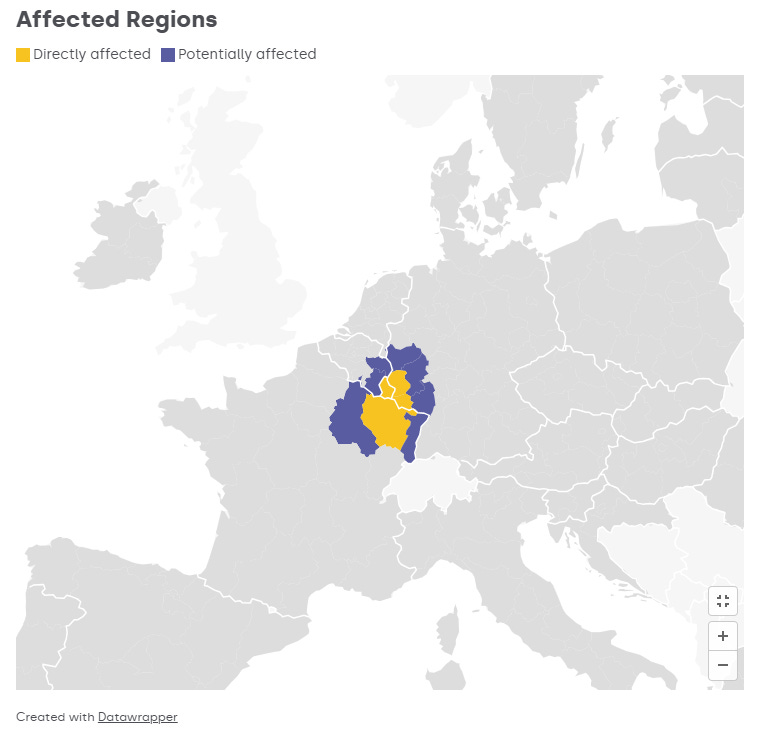Lock Blockage Disrupts Key Economic Arteries on Mosel and Saar Rivers
Supra-regional effects on road transport capacity are to be feared
The damaged lock in Müden near the confluence of the Mosel and Rhine rivers in Koblenz is currently causing a significant disruption by effectively blocking the Mosel river for an extended period. This blockage halts most traffic on both the Mosel and Saar rivers, which are crucial economic logistic arteries. Commercial traffic on these rivers extends from Nancy in France and on the Saar to Saarbrücken and Saarlouis. Therefore it is not just a German problem as the majority of goods transported to or from the Rhine are linked to France and Luxembourg. These waterways are vital for various industries, including steel (Saarlouis and Saarbrücken), consumer goods (Mertert and Trier), building products into France, and agricultural products from France.
With the rivers now completely blocked, road and rail transport remain the only alternatives. Fortunately, many terminals along the Mosel are tri-modal, but scaling up rail transport is not done overnight. Rail terminals such as Athus (Belgium) and Bettembourg (Luxembourg) are likely alternatives, along with the rail terminal in Metz. The latter has been struggling with volume management and could only absorb additional traffic if suitable connections are established.
This accident has revealed the long-overdue need for lock decoupling. Relying on a single lock has always posed a risk, a situation mirrored almost across all locks on the Mosel and Saar rivers, making such interruptions inevitable. Though parallel second locks have been planned for decades, only three went operational. Like many infrastructure projects, this one has lacked proper attention and funding. The result is yet another infrastructural problem in Germany, which will likely further reduce the already limited available truck capacity and thus might have a supra-regional impact. We will monitor the transport market in the affected region and share data and conclusions when available.
While this incident presents an opportunity for other locks to undergo necessary maintenance and upgrades during their forced closure, the ships trapped behind the locks will cause significant force majeure headaches and financial difficulties for cargo owners, barge owners and terminals. Reports indicate more than 70 ships are trapped, for an indefinite period, which could reduce capacities on other waterways. Early estimates are that the waterway will remain closed for at least three months. While a land bridge between Koblenz and Trier could serve as an alternative, the additional trucking and handling costs would drive transport expenses sky-high, eroding their fragile competitive advantage over road and rail transport.
Christian Dolderer
Lead Research Analyst
Transporeon



